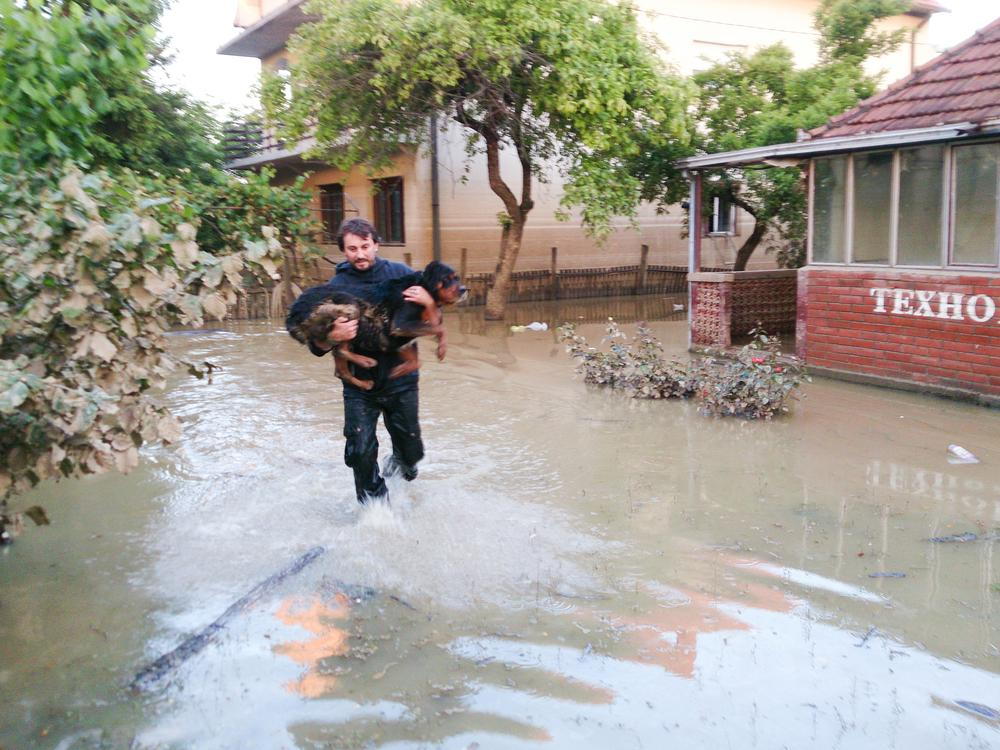
Storms and hurricanes cause a lot of financial damage. Natural disasters damage our homes and lives unless we prepare ourselves ahead of time. Besides property damage, your pets can also get affected by hurricanes. So it is a good idea to start preparing for the next storm that hits your area. There are warning systems in place that send you alerts, so sign up for these online to beat the risks that come with hurricanes. You may want to follow the GLO for updates on social media.
After you are done with the preparations, stop by the local animal shelter to see if they need any help. At such times they require sandbags, rubber gloves, mops and squeegees, and bleach. If they need volunteers to help them with sandbags and you have the spare time, why not help them out?
Staying prepared during the hurricane season means you have stocked up on food and water, have boarded up the windows, and have evacuation plans in place. You will also require a first aid kit, a flashlight, and ample batteries. Those with pets also have to stock up on pet supplies. After you secure your important documents and the house think of an evacuation plan. If you are expecting a Cat 3 or Cat 4 storm, visit family and friends to stay safe. It is helpful to make a list of friends, relatives, boarding facilities, animal shelters, and vets that can take care of your pets during the hurricane. Prepare the pets for the emergency evacuation and help them recuperate afterward. Here are some useful tips to help you get started:
Prepare an emergency kit for your pet
- For easy carriage, keep all items in robust containers and store them in a handy place for quick access.
- Include well-made leashes, harnesses, or carriers for safe transportation to eliminate any chances of an escape.
- The kits need to have an ample supply of water and food, food and water bowls, a cat litter pan in case you own a cat, and a can opener if the pets take canned food.
- Use waterproof containers for medicines, a first aid kits, and storage of medical record copies.
- When pets get lost there can be a case of mistaken identity that prolongs the search. To eliminate such chances, keep the latest photos of you with your pets handy.
- If you have to board your pets keep information on feeding timetable, vaccination records, behavioral issues, and the contact info of your veterinarian handy. Pet shelters may ask for proof of vaccinations to prevent the spread of disease.
Plan evacuation well
- Look for hotels that take in pets. Many hotels charge extra while some may allow pets for free.
- Call for reservations a day ahead of time and ask if they can waive the ‘No pets allowed’ policy during emergencies.
- Find out if your neighborhood shelter takes in pets and if they don’t then look for one that does. Check out the route and pay a visit to the spot if you can.
- Have evacuation drills with your pets so they get used to entering and traveling in their carriers.
- If you have livestock you will need to evacuate them sooner. Move these animals to higher grounds using a trailer.
- Remember to carry the pet beds and toys while evacuating.
- Do ensure your cats and dogs have their collars on with their identification. These have to fit snuggly.
- Pets get perplexed during a hurricane when scent markers get affected. The markers help them find their way home. It is advisable to ask the veterinarian to microchip your pets. This way if they run away they can be found easily.
Assist emergency workers to find the pets
- To let everyone know you have pets inside the house, use the rescue sticker alert as recommended by ASPCA. Place it in a visible spot so the rescue workers can see it easily.
- The information displayed on the sticker includes the type of pets, the number of pets in the house, and your vet’s phone number.
- Write evacuated across the stickers when you evacuate so rescue workers do not waste their time looking for pets.
Help pets recover after the hurricane
- Pet behavior may change after a hurricane. They can be hostile or shifty.
- Keep an eye on all the pets and keep them indoors. The fences and gates outside can get damaged due to gusty winds.
- Care for their well-being and keep them well protected from hazards to ensure the safety of other people and animals.
- Get an appointment with the vet, if behavioral issues persist.
The above tips will help your family and pets stay well prepared for the next hurricane. Your dogs and cats rely on you for their safety and wellness and these tips will help save their life.
